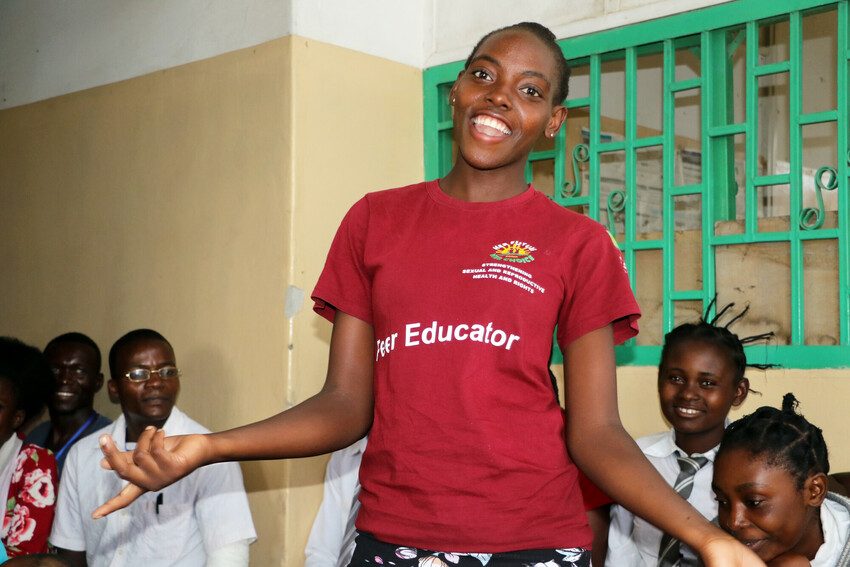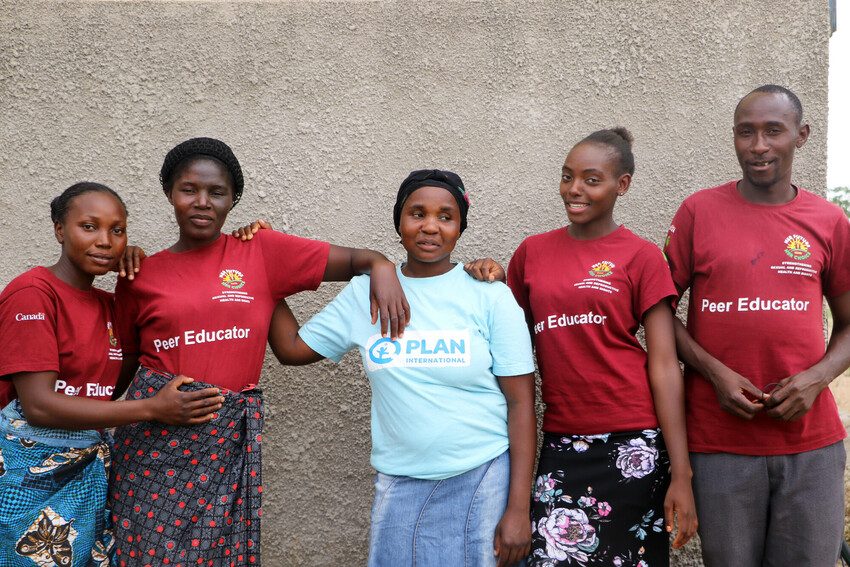Sharing knowledge through peer-led sex education
As a peer session leader Faith, 18, is equipping young people in her community with sexual and reproductive health and rights knowledge so they can make informed choices about their lives in relation to sexual health.

Faith leading a learning session.
Eighteen-year-old Faith has witnessed the effect of early pregnancy amongst her own friendship group. “Our community has high numbers of teen pregnancies and I have seen some of my friends dropping out of school because of this. I am one of the few who have completed their secondary education.”
Learning about sexual health and rights
“I am proud of the work we do equipping young people in the community with knowledge.”
Faith
Faith is a founding member of a programme to teach young people about their sexual health and rights and welcomes the opportunity to learn more, as this is a subject not often openly discussed in Zambia. “I am able to make informed decisions about my life in relation to my sexual health because of the knowledge I have gained as a member of the adolescent group.”

The adolescent group was formed in 2017 and has 42 members aged between 14 and 25 years who meet every Thursday. The group members are expected to pass on the information they learn to their peers. “I was motivated to join the group because I wanted to know more about sexual and reproductive health and rights so that I could teach other students and community members on the same subject.”
Faith says that most of the girls she speaks to do not have much knowledge about sex education and came from poorer households. “Recently, we visited 3 schools and 3 villages and reached more than 250 young people, mainly boys and girls, with the aim of teaching them about body development, pregnancy, sexuality, HIV/AIDS, relationships, harmful practices and other forms of gender-based violence.”
“I am proud of the work we do equipping young people in the community with knowledge about sexuality education, social norms and gender equality, teenage pregnancy, access to adolescent and youth friendly SRHR services, including contraception and safe abortion among other things,” concludes Faith.
Supporting peers
The peer education adolescent groups are being supported through Plan International’s Girls Step Up project which is an initiative focused on promoting sex education and dialogue among adolescent girls and young people. The project aims to increase teenagers knowledge of SRHR, promote access to and use of sexual health services among adolescent girls and young people, help reduce the number of girls dropping out of school due to unwanted pregnancies and develop youth leadership skills.
The project is also providing opportunities for adolescent girls and young people to learn financial literacy and entrepreneurial skills so they can live independently, which will hopefully lead to a reduction in early marriages and teenage pregnancies.
The knowledge gap
In Zambia, it’s not uncommon for young people to start having sex at an early age which is one of the reasons behind the high teenage pregnancy rate in the country. According to the latest Zambia Demographic and Health Survey from 2018, 29% of Zambian girls have given birth by the age of 18.
Children born to adolescent mothers may experience a wide range of problems, they are at greater risk of low birth weight, stunting, and infant mortality. Poor health associated with being born to adolescent mothers may also prevent children from being active in school and from completing their education.
Categories: Campaigns, Sexual and reproductive health and rights
